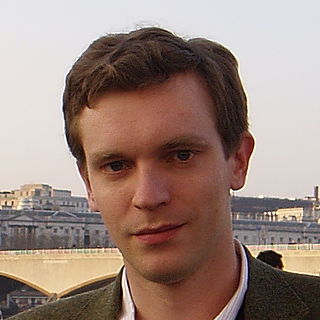A Quote by Jacques Derrida
The poet…is the man of metaphor: while the philosopher is interested only in the truth of meaning, beyond even signs and names, and the sophist manipulates empty signs…the poet plays on the multiplicity of signifieds.
Related Quotes
Truth then seems to me, in the proper import of the word, to signify nothing but the joining or separating of Signs, as the Things signified by them do agree or disagree one with another. The joining or separating of signs here meant, is what by another name we call proposition. So that truth properly belongs only to propositions: whereof there are two sorts, viz. mental and verbal; as there are two sorts of signs commonly made use of, viz. ideas and words.
I had fallen in love. What I mean is: I had begun to recognize, to isolate the signs of one of those from the others, in fact I waited for these signs I had begun to recognize, I sought them, responded to those signs I awaited with other signs I made myself, or rather it was I who aroused them, these signs from her, which I answered with other signs of my own . . .
A trouble with poetry is the presence of presumptuousness in poetry, the sense you get in a poem that the poet takes for granted an interest on the reader's part in the poet's autobiographical life, in the poet's memories, problems, difficulties and even minor perceptions. I try to presume that no one is interested in me. And I think experience bears that out. No one's interested in the experiences of a stranger - let's put it that way. And then you have difficulty combined with presumptuousness, which is the most dire trouble with poetry.
The signs that presage growth, so similar, it seems to me, to those in early adolescence: discontent, restlessness, doubt, despair, longing, are interpreted falsely as signs of decay. In youth one does not as often misinterpret the signs; one accepts them, quite rightly, as growing pains. One takes them seriously, listens to them, follows where they lead. ... But in the middle age, because of the false assumption that it is a period of decline, one interprets these life-signs, paradoxically, as signs of approaching death.
When you know that something's going to happen, you'll start trying to see signs of its approach in just about everything. Always try to remember that most of the things that happen in this world aren't signs. They happen because they happen, and their only real significance lies in normal cause and effect. You'll drive yourself crazy if you start trying to pry the meaning out of every gust of wind or rain squall. I'm not denying that there might actually be a few signs that you won't want to miss. Knowing the difference is the tricky part.
Jesus has chosen, even in a resurrected, otherwise perfected body, to retain for the benefit of His disciples the wounds in His hands and in His feet and in His side-signs, if you will, that painful things happen even to the pure and the perfect; signs, if you will, that pain in this world is not evidence that God doesn't love you; signs, if you will, that problems pass and happiness can be ours.
... the age of simulation thus begins with a liquidation of all referentials - worse: by their artificial resurrection in systems of signs, a more ductile material than meaning... It is no longer a question of imitation, nor of reduplication, nor even of parody. It is rather a question of substituting signs of the real for the real itself.
One of the appeals of William Carlos Williams to me is that he was many different kinds of poet. He tried out many different forms in his own way of, more or less, formlessness. He was also a poet who could be - he was a love poet, he was a poet of the natural order and he was also a political poet.









































